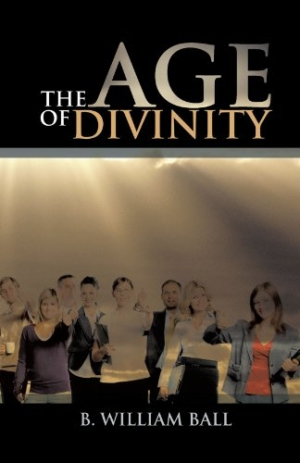The Age of Divinity
Unsatisfied with the religious teachings he had been exposed to in his childhood and youth, spiritual teacher B. William Ball embarked on a sixty-year journey of spiritual discovery through personal study and meditation. At first, unaware that others had followed a similar path before him, he believed that his findings were unique, but his studies in English literature introduced him to the thinking of literary giants who corroborated the discoveries he had been making. Ball’s subsequent encounters with the teachings of the New Thought Movement and the Unity Church, one of the religious denominations that grew out of the movement, satisfied his need for a faith that honored both the divine and human reason. The author has been associated with Unity Church for more than thirty-five years.
The Age of Divinity takes readers on a philosophical tour of ideas, including the debate over the existence and nature of God, the Big Bang theory of the universe’s creation, and many other topics that have perplexed thinkers from antiquity to the present. Ball opens room for debate by making a distinction between facts and truth; he defines a fact as something that may change over time and a truth as something that is unchangeable. He also takes on the concept of heaven, which he believes to be a “state of being” rather than a “piece of real estate” in the sky. Heaven, he declares, is experienced when one lives in the “age of divinity,” a time of divine truth and unconditional, universal love. Ball believes that the arrival of the “age of divinity” is inevitable because it is in God’s design for humankind.
The author’s arguments are well-reasoned, but they are not backed up with scientific research or identified as coming from a particular faith tradition. For example, Ball appears to accept reincarnation as a truth, but, as its truth cannot be proved, it is better placed in the category of dogma. And he asserts that one must accept that every human being is a divine spirit “by an act of will, by making a decision to replace all old beliefs with the truth of divine origin”—exactly the type of demand that he excoriates as being contrary to science and common sense. Other statements, including the assertion that “as population numbers have increased on earth, the amount of resources has also increased, so that now, as was the case hundreds of years ago, there is enough for the needs of all,” are similarly unsupported.
The author’s writing is conversational, engaging, and, if one accepts his underlying belief system, logical. Thorough proofreading and editing would correct errors in grammar, tense agreement, punctuation, word spacing and sentence structure and improve sentences such as this one: “The time will come when all humanity will behave as how love directs…,” and “…we all learn many facts that are mostly originally discovered by others and whose knowledge are passed to us.” While the book’s layout and typeface are agreeable, the cover design seems more appropriate to a book on business development or workplace skills than to a book on spirituality. A bibliography to aid those interested in learning more about New Thought/Unity teachings would have also been helpful.
Reviewed by
Kristine Morris
Disclosure: This article is not an endorsement, but a review. The publisher of this book provided free copies of the book and paid a small fee to have their book reviewed by a professional reviewer. Foreword Reviews and Clarion Reviews make no guarantee that the publisher will receive a positive review. Foreword Magazine, Inc. is disclosing this in accordance with the Federal Trade Commission’s 16 CFR, Part 255.

